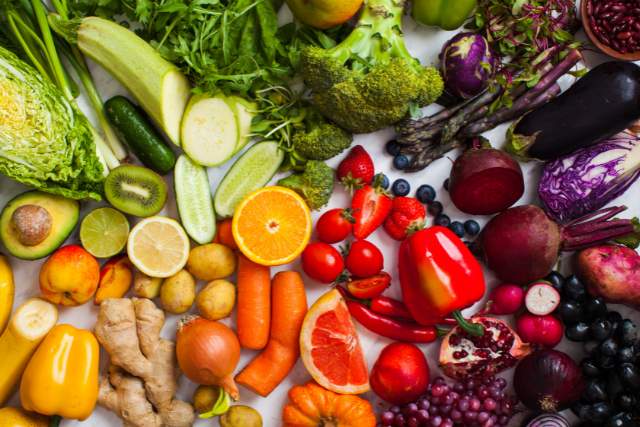Recent Posts
-

- Diabetes-Friendly Nutrition: Smart... 08.12.2024
-

- Nutrition for Chronic... 08.12.2024
-

- Anti-Inflammatory Diet: Food... 08.12.2024
-

- Low-Sodium and Heart-Healthy:... 08.12.2024
-

- Plant-Based Diets for... 08.12.2024
Brussels Sprouts: Small in Size, Big in Flavor

Brussels sprouts, scientifically known as Brassica oleracea var. gemmifera, are small, cabbage-like vegetables that belong to the Brassicaceae family. These miniature cruciferous greens resemble tiny cabbages, typically measuring about 1 to 1.5 inches in diameter. Originating from Brussels, Belgium, where they likely gained their name, Brussels sprouts have been cultivated for centuries.
Brussels sprouts are highly regarded for their flavor, characterized by a unique and somewhat bitter taste. The nutritional profile of Brussels sprouts is rather excellent, in addition to its distinctly delicious flavor. Folate, vitamin C, and vitamin K are the three vitamins and minerals that are most abundant in these small veggies. They are also rich in other vitamins and minerals.
In addition, Brussels sprouts are an excellent source of dietary fiber and antioxidants, making them an ideal complement to a diet focused on maintaining a healthy lifestyle. Because of their high nutrient content, Brussels sprouts have gained popularity among consumers as they become more conscious of the nutritional value of their meals.
Brussels sprouts are now reborn in the world of cuisine, even though they were formerly considered an unappealing side dish at the family dinner table. The potential of these green jewels is being rediscovered by professional chefs and home cooks alike, raising them from simple accompaniments to critical players in gourmet dishes. The recognition of their one-of-a-kind, earthy flavor and the flexibility they offer to the kitchen are likely the driving forces behind their meteoric surge in popularity.
When maximizing the potential of Brussels sprouts, the cooking methods used are the most important to consider. Cooking techniques such as roasting, sautéing, and grilling have become more popular recently. These techniques enable the vegetable to retain sweetness while imparting a pleasant crunch.
In the past, boiling may have resulted in overdone and bitter vegetables. The taste profile of Brussels sprouts may be further elevated by experimenting with complementing flavors such as balsamic glazes, garlic, or Parmesan. This can turn Brussels sprouts into a gourmet revelation.
There is a plethora of inventive dishes that may be tried out by those keen to expand their knowledge of the adaptability of Brussels sprouts. The alternatives are almost limitless, ranging from Brussels sprouts salads topped with cranberries and walnuts to Brussels sprouts tacos topped with a lime crema that is bold and tangy.
These tiny green crucifers are more than just a side dish; they are a culinary canvas begging to be explored, as shown by savvy chefs adding Brussels sprouts into meals such as spaghetti, stir-fries, and even breakfast hashes.
Brussels sprouts have seen a remarkable transition in the world of vegetables, from simple vegetables to haute cuisine. These cruciferous pleasures are capturing taste buds and altering the way we know this vegetable that was formerly considered to be unappealing.
Despite their small size, they are bursting with flavor. When you embrace the robust flavor of Brussels sprouts, you open the door to a world of culinary options that highlight these magnificent greens' little but powerful character. This is true regardless of whether you are a seasoned devotee of Brussels sprouts or a timid first-timer.
Disclaimer: The information provided in this article is for general information purposes only. All information in this article is sourced from other websites, and we do not represent any rights regarding the contents and information on the site. All rights belong to their original owner.





